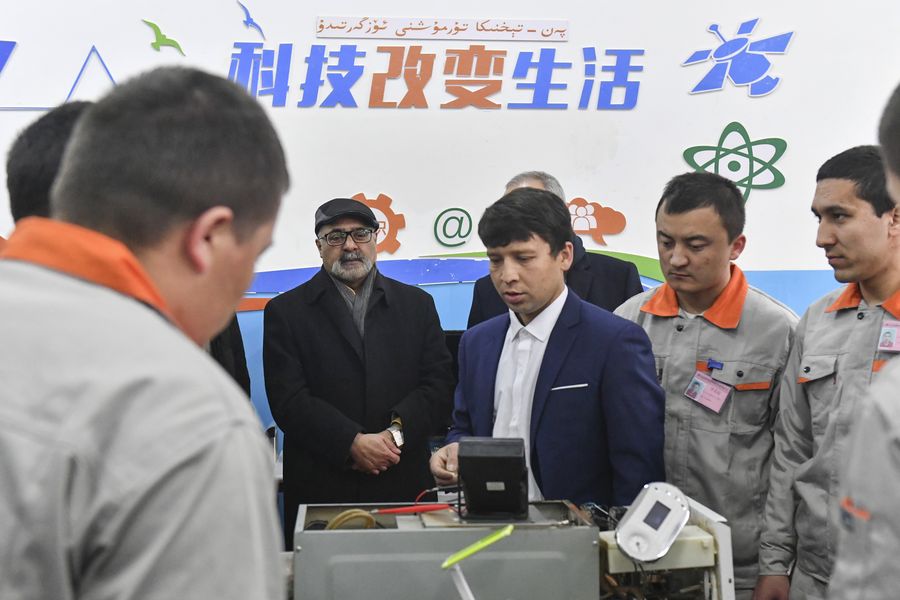
Farukh Akhter Amil (wearing hat), permanent representative of Pakistan to the UN Office at Geneva, visits an electronics training class at the vocational education and training center in Moyu county of Hotan Prefecture, northwest China's Xinjiang Uygur Autonomous Region, Feb. 18, 2019.(Xinhua/Ma Kai)
Personal freedom of trainees at the education and training centers is protected in accordance with the law, according to the document.
BEIJING, Aug. 16 (Xinhua) -- Education and training in Xinjiang are an important measure to help trainees break free from ideas of terrorism and religious extremism, not a measure to limit or circumscribe a person's freedom, said a white paper published by the State Council Information Office on Friday.
They are designed to "help the trainees emancipate their minds, improve themselves and their future prospects," said the white paper titled Vocational Education and Training in Xinjiang.
The personal freedom of trainees at the education and training centers is protected in accordance with the law, according to the document. The centers employ a residential education model which allows trainees to go back home on a regular basis and ask for leave to attend personal affairs. The trainees also enjoy the freedom of correspondence.
The regulations, curriculum, and menus at the centers all use local ethnic languages as well as standard Chinese. The customs of all ethnic groups are fully respected and protected, and a variety of nutritious Muslim food is provided free of charge, according to the white paper.
The centers practice separation of education and religion in management, which means trainees should not organize or take part in religious activities there, but they can decide on their own whether to do so on a legal basis when they get home.
The centers have well-equipped facilities -- central heating in winter, air conditioners and electric fans in summer, TVs in the dormitory, and bathrooms. They also have free 24-hour medical facilities available to trainees. In the case of major and acute illnesses, trainees will be sent to hospital.
The centers also have reading rooms, legal counseling rooms and mental counseling rooms. All trainees are included in public pension and medical insurance schemes, and are entitled to free health examination, according to the white paper.



